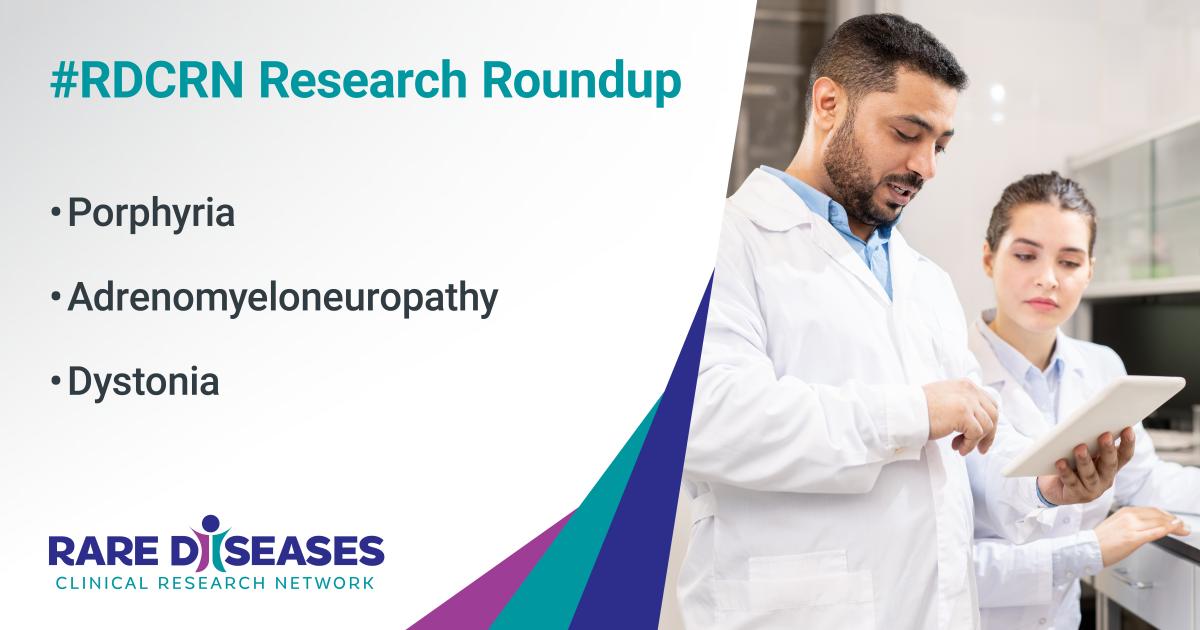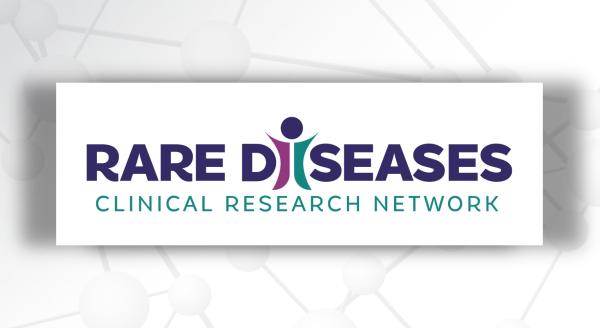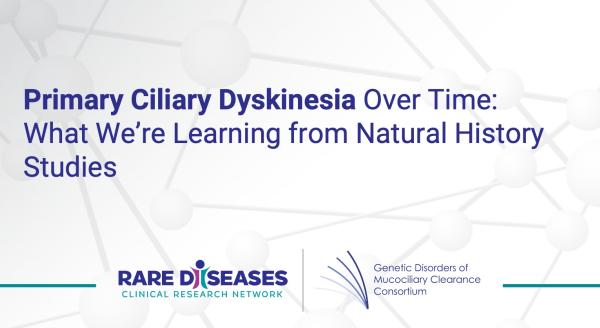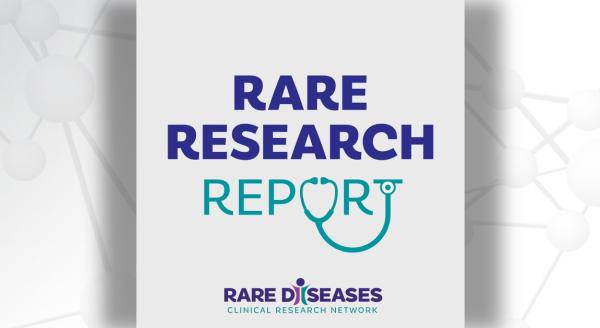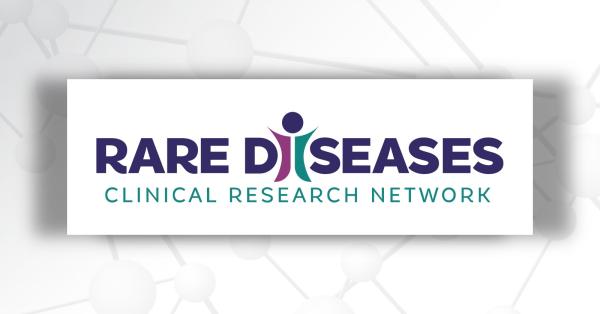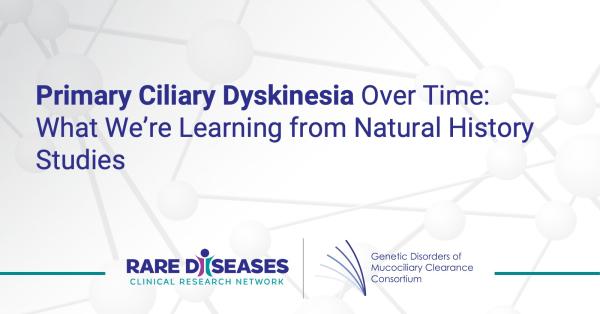Each week, we share summaries of recent Rare Diseases Clinical Research Network (RDCRN) grant-funded publications. Read new research on porphyria, adrenomyeloneuropathy, and dystonia.
Study Finds ABCB6 Genotype Does Not Correlate with Disease Severity in Porphyria Phenotype
Porphyrias Consortium (PC): ABCB6 polymorphisms are not overly represented in patients with porphyria
The porphyrias are a group of rare, inherited, metabolic disorders characterized by elevated porphyrin or porphyrin precursor levels that are caused by deficiencies in one of eight enzymes necessary for heme production. Recent studies have suggested that the genotype of the transporter protein ABCB6 contributes to the porphyria phenotype.
To address this proposed link, researchers analyzed data from a large cohort of patients with acute hepatic porphyria and erythropoietic protoporphyria. Results showed that the ABCB6 genotype did not correlate with disease severity. Authors conclude that genotyping of ABCB6 in patients with acute hepatic porphyria and erythropoietic protoporphyria is not warranted.
Tracking Progression of Sensorimotor Outcomes in Adrenomyeloneuropathy
Global Leukodystrophy Initiative Clinical Trials Network (GLIA-CTN): Sensorimotor outcomes in adrenomyeloneuropathy show significant disease progression
Adrenomyeloneuropathy is an X-linked disorder (on the X chromosome) characterized by the disruption in fat metabolism (break down) which leads to the accumulation of very long-chain fatty acids throughout the nervous system, adrenal glands, and testes. As current outcomes used to evaluate the disorder are limited, quantitative outcomes are needed.
In this prospective study, researchers aimed to track sensorimotor outcomes in adults with adrenomyeloneuropathy and evaluate differences in progression between men and women. The team analyzed data to detect changes in outcomes over 2 years. Outcomes included postural sway in four static standing conditions, great-toe vibration, hip strength, walking velocity, timed up-and-go, and 6-minute walk distance.
They found that participants showed significant worsening in all standing conditions, sensation, and strength. However, they showed more stability in walking, with only velocity significantly declining. For each sex, postural sway declined significantly in all conditions except for eyes closed feet together for women. Strength declined significantly by sex for hip flexion. Sex-specific significant decline was seen in walking for men only. Authors note that quantitative measures of postural sway, sensation strength, and walking are effective measures of adrenomyeloneuropathy progression in 2 years.
Review Examines Tremor in Dystonia
Dystonia Coalition (DC): Clinical features, pathophysiology, treatment, and controversies of tremor in dystonia
Dystonia is a general term for a group of movement disorders characterized by uncontrollable, sometimes painful, involuntary muscle contractions, resulting in repetitive shaking, turning, and twisting of affected body parts. Dystonia is a rare disorder, but it often coexists with a more common disorder, tremor. The reasons for the frequent co-occurrence of dystonia and tremor are not clear.
In this review article, researchers outline the differences in definitions, subtypes, and pathophysiology of dystonia and tremor. They outline some controversial topics, such as whether these two problems share a similar pathophysiology.
The Rare Diseases Clinical Research Network (RDCRN) is funded by the National Institutes of Health (NIH) and led by the National Center for Advancing Translational Sciences (NCATS) through its Division of Rare Diseases Research Innovation (DRDRI). Now in its fourth five-year funding cycle, RDCRN is a partnership with funding and programmatic support provided by Institutes, Centers, and Offices across NIH, including the National Institute of Neurological Disorders and Stroke, the National Institute of Allergy and Infectious Diseases, the National Institute of Diabetes and Digestive and Kidney Diseases, the Eunice Kennedy Shriver National Institute of Child Health and Human Development, the National Institute of Arthritis and Musculoskeletal and Skin Diseases, the National Heart, Lung, and Blood Institute, the National Institute of Dental and Craniofacial Research, the National Institute of Mental Health, and the Office of Dietary Supplements.

